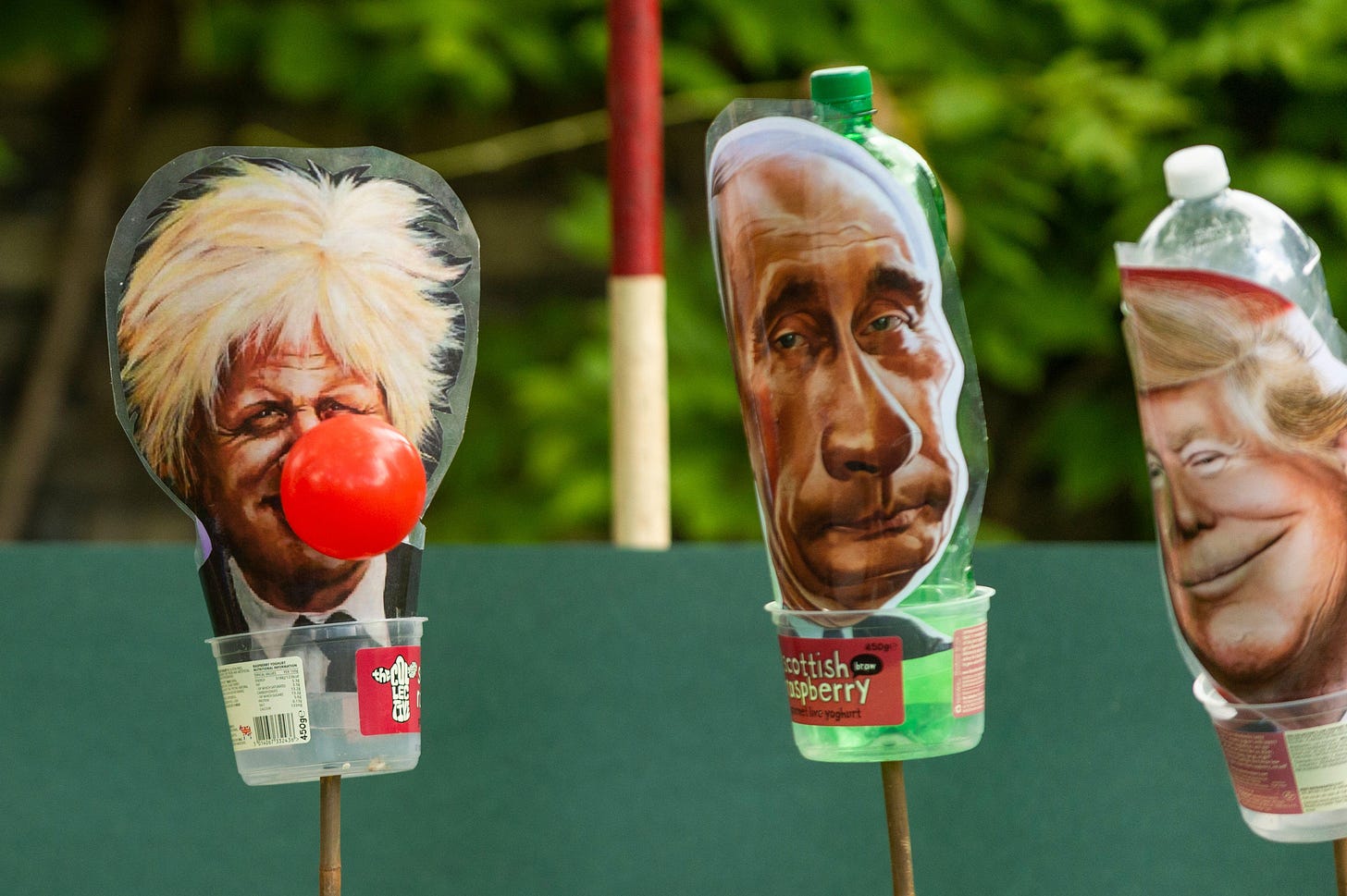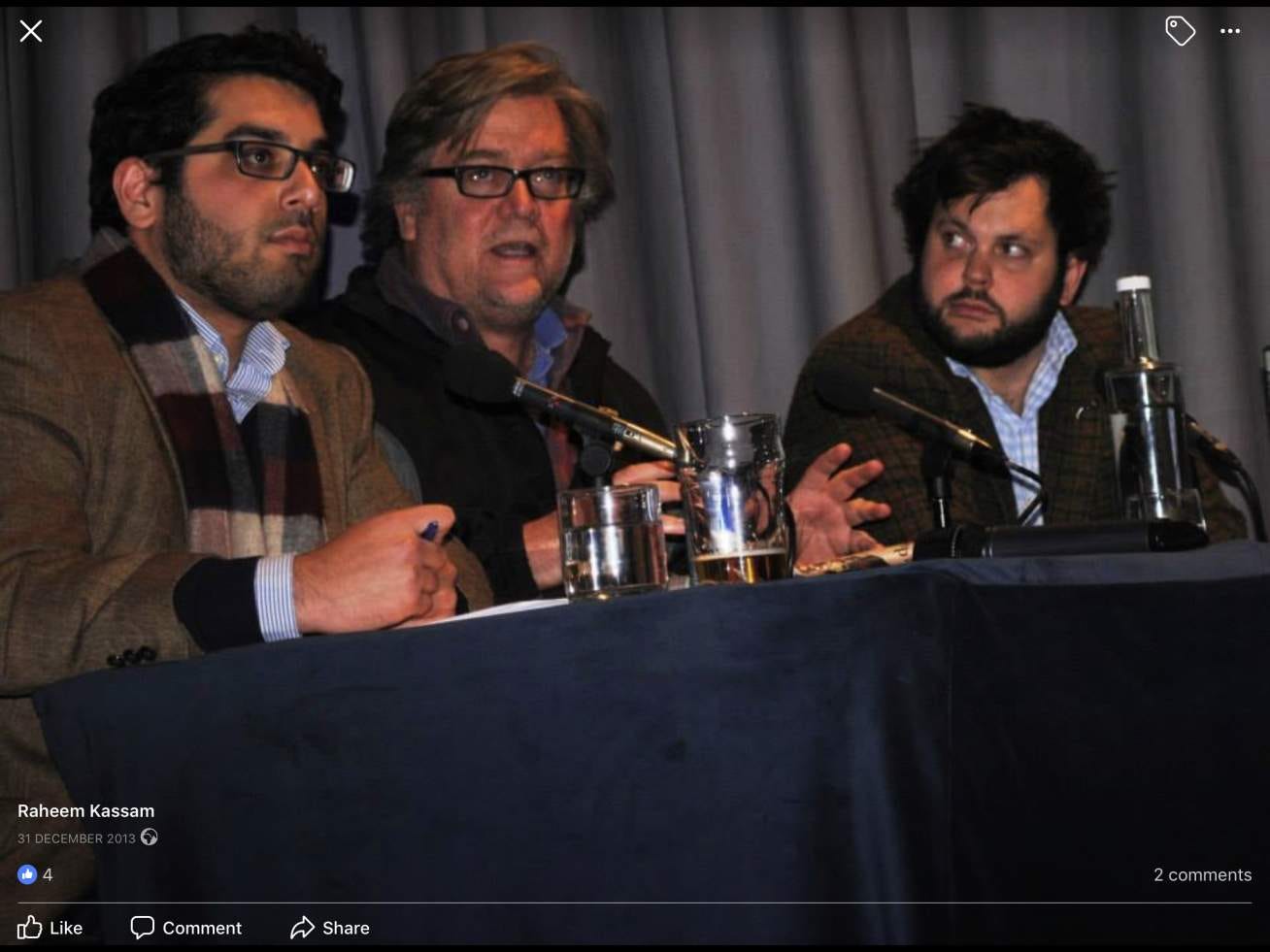'Political Technology' and the Transatlantic Alt-Right: The Data We Should All Know About
Inspired by Anne Nelson's book, Tamsin Shaw dissects the history of America's Council for National Policy and its connections to Brexit, Trump, Russia and the revelations of Edward Snowden
Everyone in Britain should have heard of America’s Council for National Policy (CNP). Anne Nelson has shown in her vital book Shadow Network: Media, Money and the Secret Hub of the Radical Right, that the most powerful leaders on the radical right in America emerged from this secretive organization. Lists of members have sometimes been leaked.
They include Steve Bannon, Michael Flynn, Ginni Thomas, Ali Alexander, and other supporters of the 2021 attempted coup in the States. The core of its membership has been constituted for decades by America’s big billionaire families, the DeVoses, the Princes, the Kochs, the Mercers and so on. This concentration of power and influence might be reason enough for the British people to be aware of the CNP. But its members have also been surreptitiously active in the UK for over a decade, with undeniable impact.
Robert Mercer and Steve Bannon, both CNP members, will be known to readers of Byline Times for their involvement with Cambridge Analytica, (Mercer owned it; Bannon ran it), which was responsible for the data operations behind Brexit and the Trump campaign. But their operations on the ground in the UK are much more extensive. Bannon has often said that Brexit and Trump’s election were “one event”. The groundwork had been laid for a long time.
Bannon started grooming Nigel Farage around 2011. Farage loved it, of course. Although he’d enjoyed several years of being amused by his own speeches in the European Parliament, as a right-wing nationalist provocateur he was treated like an oaf by his weary multilingual colleagues. In 2012, just after Bannon had been appointed by Andrew Breitbart to be executive editor of the right-wing website Breitbart News, he invited Farage to Washington and New York to meet his powerful American friends.
When Farage later told a New Yorker reporter, “I have got a very, very high regard for that man’s brain,” it was hard not to hear it as an exclamation of gratitude. After all, Bannon set him on a path to having a successful show on RT (formerly Russia Today), having meetings with the Russian ambassador to the UK, being the victorious champion for his cherished cause, Brexit, and on first-name terms with the President of the United States.
But while Bannon is known for cultivating people like Farage, Raheem Kassam of Breitbart, even Boris Johnson, it was Robert Mercer who paved the way by astroturfing a transatlantic right-wing movement.
Peter Jukes is one of the few people to have exposed this aspect of their activities. Mercer sponsored the Young Americas Foundation and its offshoot, the Young Britons Foundation, with a typical American far-right agenda. In 2013, Jukes tells us, they met for a conference in Cambridge and discussed, amongst other things, their preferred candidate for Prime Minister, with Boris Johnson being the favourite. Raheem Kassam and other prominent Brexit supporters were amongst them.
2013, Jukes points out, was a critical year for establishing the influence campaigns they would benefit from. As Putin was making plans to take Crimea, Yevgeny Prigozhin (now notorious for being head of the Wagner Group) set up the Internet Research Agency to deploy social media influence operations. In Britain, Chris Wylie and Alexander Nix were setting up the Cambridge branch of SCL Group, the strategic communications company that would become Cambridge Analytica.
It was also a critical year for the relationship between the US far right and Russia. The affinity between the views of the American right and those of Putin was openly declared by self-described “paleo-conservative”, Pat Buchanan, who shocked many traditional conservatives with the claim that he, like Putin, saw Obama’s America as the greatest source of evil in the world. Putin is an ally, he wrote, in the struggle against “the militant secularism of a multicultural and transnational elite.”
The passage of anti-gay legislation in Russia, as well as a shared loathing for the liberal Pope Francis, created more common ground. Buchanan particularly praised the joint American-Russian organization, the World Congress of Families (WCF), for pioneering cooperation. The chair of the Dignitatis Humanae Institute (a far-right Catholic organization of which Bannon is a patron), Italian politician Luca Volonte, is a WCF official, as is the Institute’s trustee and former Breitbart contributor, Austin Ruse.
But though Buchanan was then the face of this US-Russian relationship, he was far from being the fulcrum on which it would turn. To understand the real power brokers, we have to go back the CNP and their decades of activism.





